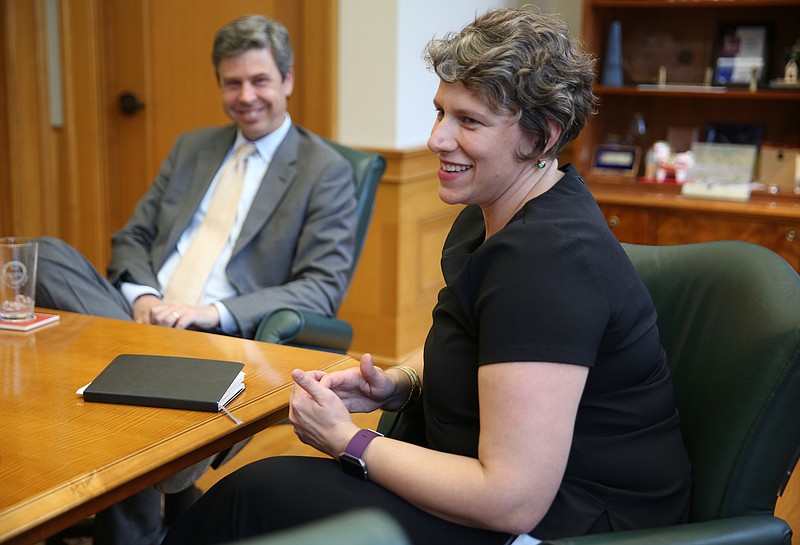Chattanooga has achieved yet another dubious ranking: 9th worst-run city in the country - due in no small measure to the quality of schools here.
This smack comes from WalletHub, which rated 33 community factors including crime rates, quality of schools, economic growth and wages, financial stability and other factors - measured against the city's per-capita budget.
In Chattanooga's case, this is a bit unfair, since our schools are county-run and county-funded. Yet our students' learning, or lack of it, affects the city's crime rate, economic growth, wages and financial stability.
In other words, our youngsters' education has a direct impact on the quality of life in our entire community.
Fortunately, two stories in Tuesday's Chattanooga Times Free Press get right to the heart of what we hope and believe will lead to improvement.
First, the city, while it does not control any school board decisions or funding, has decided to step up its own ongoing investment in early childhood learning. Mayor Andy Berke has announced a first-ever director of the city of Chattanooga's Office of Early Learning. At the same time, the city has boosted its investment in early childhood development by providing more than $1.5 million in additional support for improved childcare programs for working families and Baby University, which the city launched in 2015 to help families understand how to meet their infants' and toddlers' developmental benchmarks.
This is important because 80 percent of a child's brain development happens during the first three years of life.
In Hamilton County, statistics compiled by Chattanooga 2.0, a Chamber of Commerce-backed education study group, bear out the long-term effect of doing too little for very young children: Only 60 percent of our kindergartners begin classes with a vocabulary that enables them to learn, only 60 percent of our third-graders are able to read at grade-level, only 62 percent of our high school graduates are seen as jobs-ready in the eyes of local employers.
Here's the second item of good news: Tennessee Education Commissioner Candice McQueen is in town this week "to work with the community to chart a path forward" to ensure every child has the chance to be successful at whatever they choose to do.
That "path" is to follow one of two choices: The state takes over at least some of our five lowest-performing schools - Brainerd High, Dalewood Middle, Woodmore Elementary, Orchard Knob Middle and Orchard Knob Elementary - and places them in the state-run Achievement School District; or the state partners with Hamilton County Schools to establish a Partnership Zone for those schools with a completely new school board appointed by the state and local district.
Some of our local school board members seem unhappy with either option, but frankly they've not done right by these children.
In our view, either of the state's options will represent an improvement - not only for the children, but for our community as a whole. We prefer the state's proposed Partnership Zone.
It's hard to see how the signs could be any clearer that education - good education, not business-as-usual education - is the key to fixing all of the thorny problems facing us here in Chattanooga and Hamilton County.
